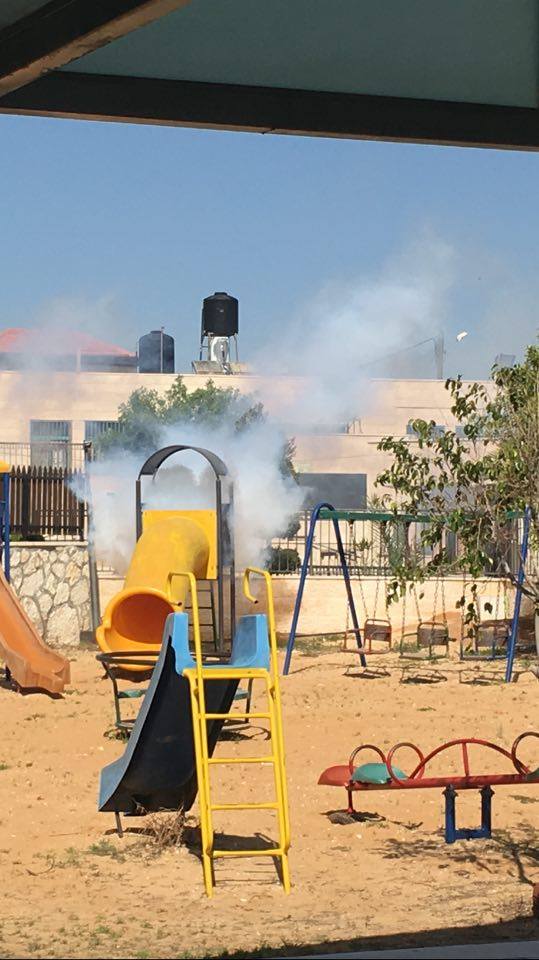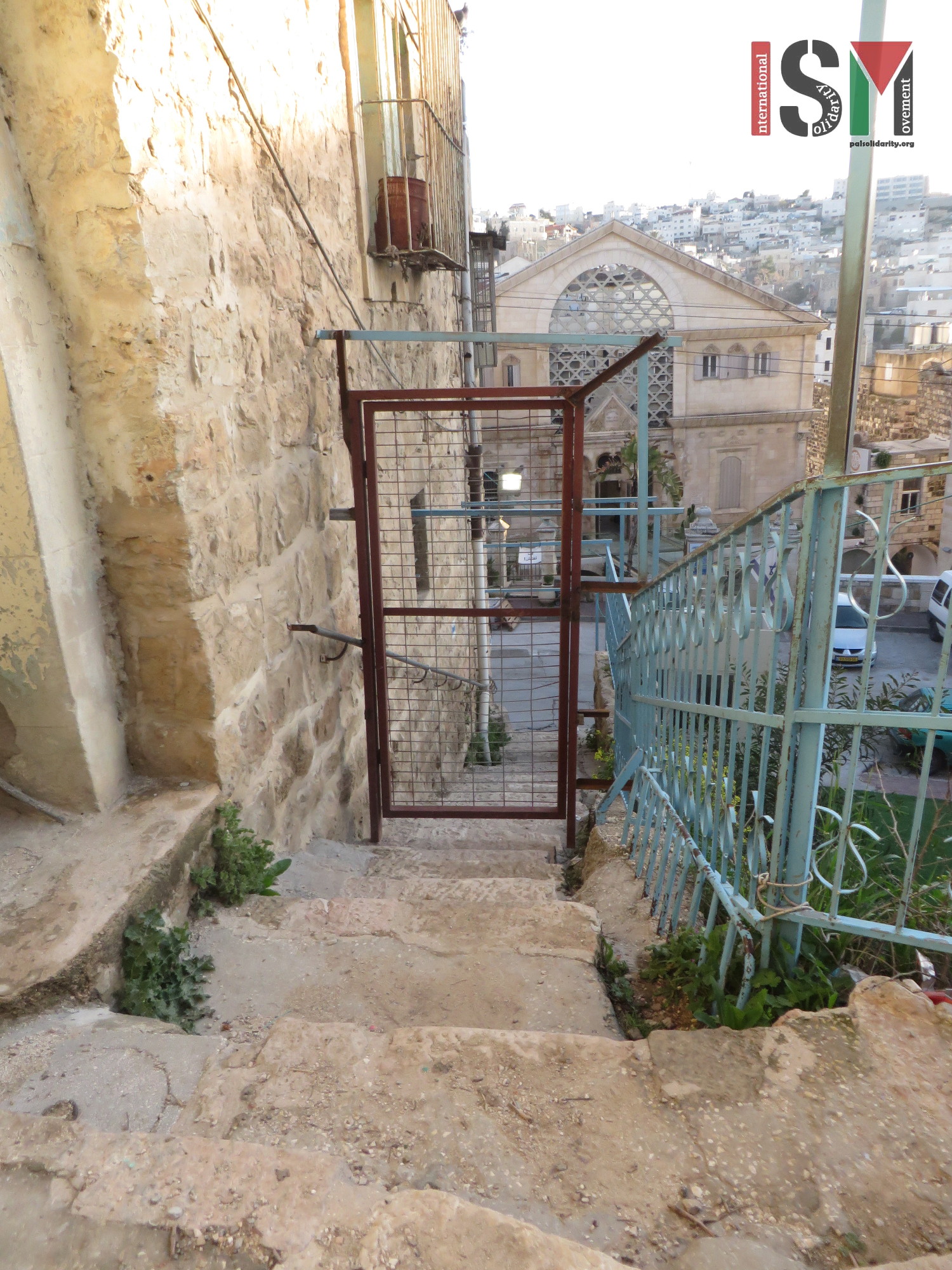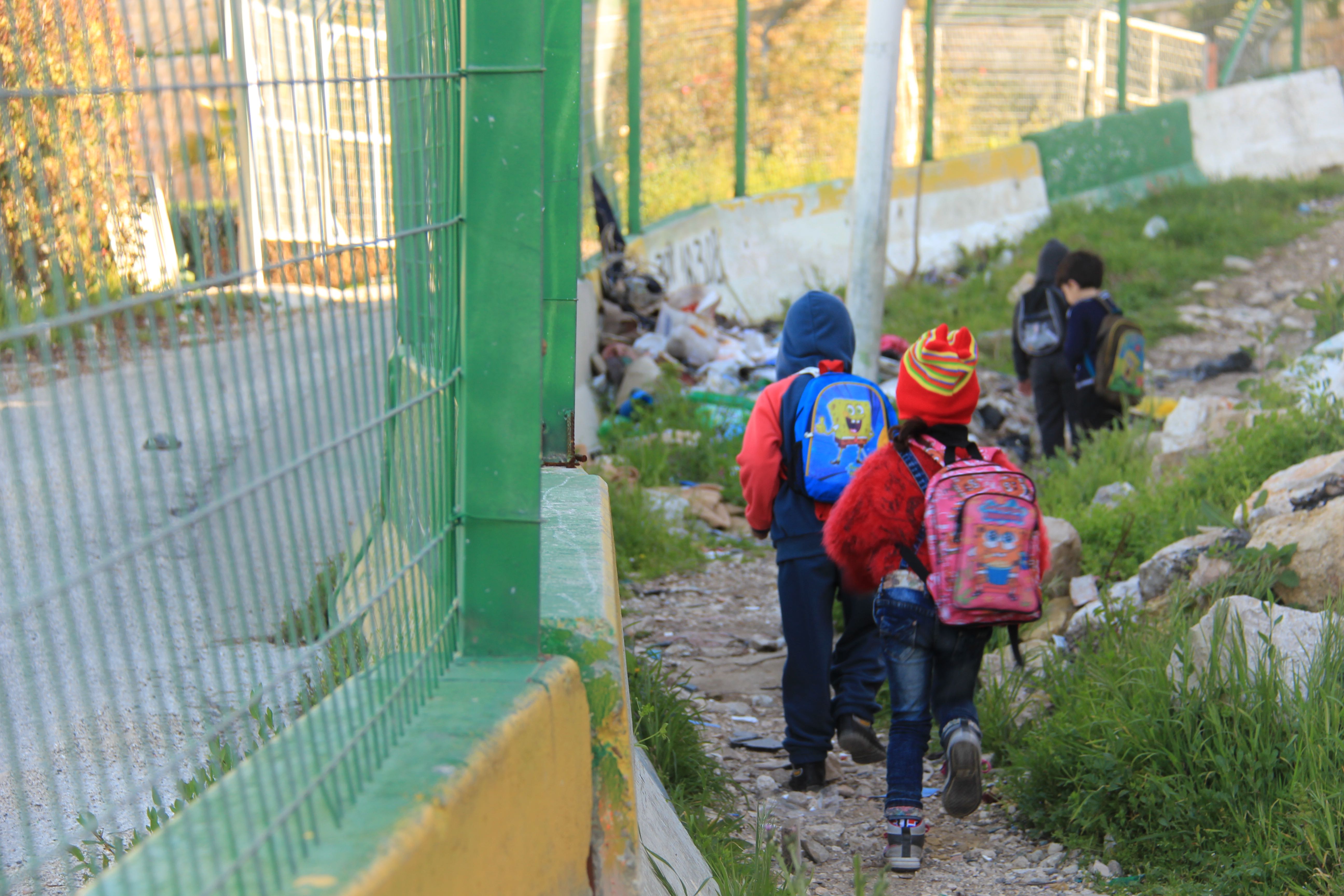Tag: Ethnic Cleansing
-
Targeting playgrounds in Ni’lin
14th March 2016 | International Solidarity Movement, al-Khalil team | Hebron, occupied Palestine On Friday, 11th March 2016, Israeli forces again attacked the non-violent protest in Ni’lin in the occupied West Bank, showering the village, including a public park and playground, in tear gas. For years the villagers of Ni’lin have been protesting the illegal…
-
Ethnic cleansing of Shuhada Street in occupied al-Khalil (Hebron)
6th March 2016 | International Solidarity Movement, al-Khalil team | Hebron, occupied Palestine Since the 1994 Ibrahimi Mosque Massacre, the majority of Shuhada Street – once the thriving Palestinian market and main thoroughfare connecting north and south al-Khalil (Hebron) – has been closed to Palestinians. They are completely barred from accessing it, except for a…
-
‘It is my job to scare Palestinian children’ – Israeli forces justify intimidation of kindergarten children
6th March 2016 | International Solidarity Movement, al-Khalil team | Hebron, occupied Palestine Kindergarten-children in occupied al-Khalil (Hebron) often face harassment and intimidation by Israeli forces on their way to kindergarten. Listen to this audio recording of a discussion between an international volunteer and the soldiers about why the soldiers ‘have to’ scare the kindergarten-children…



